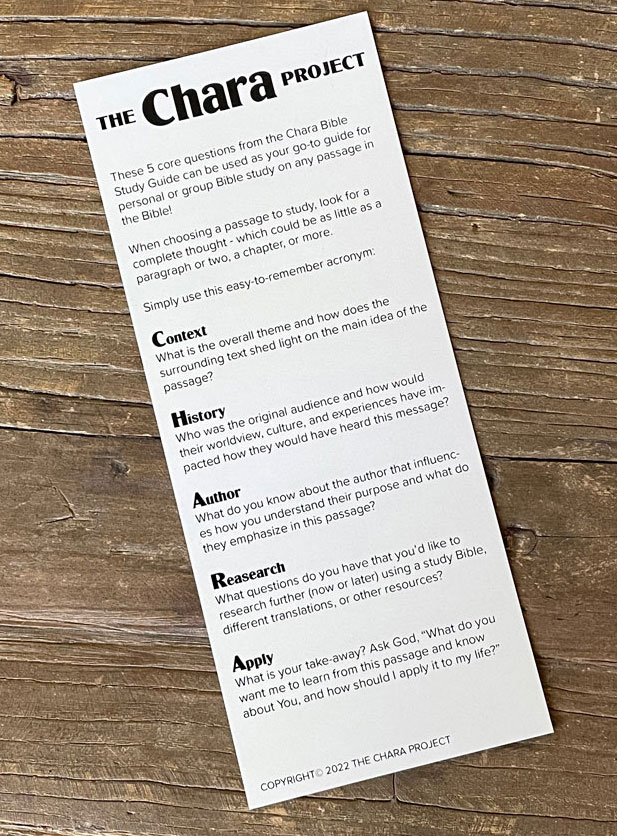“If anyone comes to me and does not hate father and mother, wife and children, brothers and sisters—yes, even their own life—such a person cannot be my disciple.” (NIV)
Welcome to the Bible Study Guide for Luke 14:26, which leverages questions from the CHARA Bible Study Guide, when studying this verse. Below are the questions the Chara team chose to ask, in the order they chose to ask them, but feel free to use other questions or change up the order as you dive into this passage. For ANSWERS from the Chara team on these questions, check out the video below.
APPLY
Express: What fears or concerns do you have when reading this verse? (For example: “Am I really supposed to hate everyone to follow Jesus?”)
CONTEXT
Immediate: What is the theme or main idea found in the surrounding paragraph(s) and how does that help determine what the verse means? What five points can you pull out that Jesus is communicating to people that want to be His disciples? How does Luke 14:26 fit into the message Jesus taught? (Hint: At minimum read Luke 14:25-35, but take note of the parable before our verse in Luke 14:15-24.)
Bible: Does my interpretation hold true throughout the rest of the Bible? Is this story captured somewhere else in another gospel (or two)? What clarity and understanding does that provide? (Hint: Checking cross references should lead you to Matthew 10:37-39 and Mark 8:34-38.)
RESEARCH
Translations: Does another Bible translation (or version) add perspective or clarity on what the original language was trying to communicate? (Hint: check out the New Living Translation or the Amplified Bible)
Resources: What insights do you learn from Biblical scholars provided in Study Bibles, commentaries, and credible online resources? For example: we can learn that the word “hate” in the original language of Greek was miseo and meant to “love less”, so it implies that it’s not about true hatred of a person, but that you aren’t loving them as much as you would. What additional insights can you glean from reliable resources?
AUTHOR
Speech: What is the point Jesus is making through figurative language or symbolism? Is it possible that Jesus is using exaggerated language to get a point across?
APPLY
Respond: What was expected of the original audience and what principles make sense for us now (is it a cultural or timeless truth)? (Remember: a cultural truth is meant only for those people back then. A timeless truth is meant for all people across time… in this case, meant for Jesus’ followers back then and today.)
Ask: What do you learn about God – His character, attributes, or desires?
Pray: “Lord, what do you want me to learn and how should I apply this to my life?”


